Population and Health Sciences Faculty
Along with providing education and training, Population and Health Sciences Online faculty and researchers have achieved national and international reputations for excellence in their respective fields of research and expertise. Short summaries of faculty are detailed below.
 Susan Aaronson, M.A., RD
Susan Aaronson, M.A., RD
Lecturer III, Nutritional Sciences
Susan received her master's degree in Nutritional Science from Wayne State University. She is the Director of The University of Michigan Didactic Program in Dietetics. She has 30 years of experience as a Registered Dietitian in the area of clinical and acute care, as well as extensive experience in community and non-profit public health nutrition. Susan is certified in pediatric and adolescent childhood weight management. She developed the curriculum and coordinated a school based, community-University of Michigan collaborative effort, Project Healthy Schools, aimed at reducing childhood obesity in local and statewide middle schools. Susan serves on the board of Food Gatherers and Ypsilanti Meals on Wheels and has an interest in food insecurity.
Susan co-teaches Precision Nutrition: Translating the Science to Practice for the online MPH program.
In her spare time, Susan enjoys participating in distance running events, hiking in National Parks, growing organic produce, and traveling with her family.
 Sara Dubowsky Adar, Sc.D.
Sara Dubowsky Adar, Sc.D.
Associate Professor, Epidemiology
Dr. Adar began her career after earning an environmental engineering degree from the Massachusetts Institute of Technology. She then moved into Public Health, earning a masters degree from the Johns Hopkins School of Public Health and a doctorate from the Harvard School of Public Health. Her research focuses on the human health effects of air pollution and noise, with a growing interest in identifying intervention strategies to reduce exposures and improve health. Dr. Adar has repeatedly served as an expert panelist for the U.S. Environmental Protection Agency and has participated in the review of the science for the National Ambient Air Quality Standards for particulate matter and sulfur oxides. She has received the American Heart Association's Sandra A. Daugherty Award for Excellence in Cardiovascular Epidemiology, the University of Michigan School of Public Health's Excellence in Teaching Award, and was elected as an Officer on the Executive Council of the International Society of Environmental Epidemiology.
Dr. Adar is excited to be teaching EPID 590 - Epidemiological Methods, a course in the Epidemiologic Methods elective series for the online MPH program.
In her spare time, Dr. Adar enjoys spending time with her family, traveling, hiking, playing board games, and solving jigsaw puzzles. She also always finds joy in learning something new.
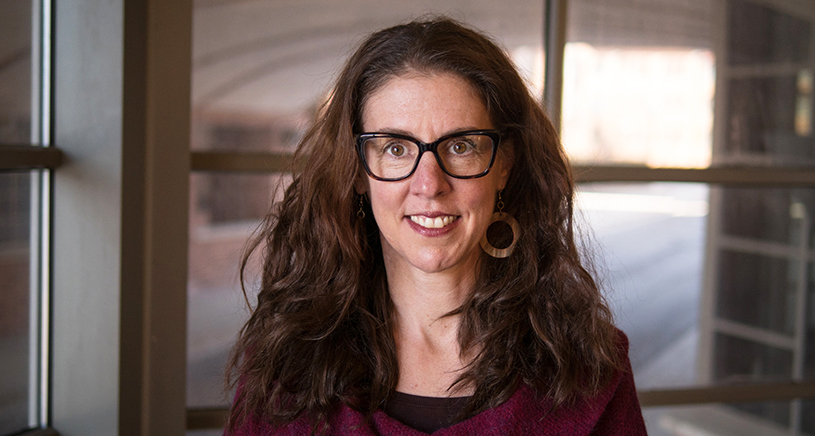 Ella T. August, PhD
Ella T. August, PhD
Clinical Assistant Professor, Epidemiology
Faculty Associate, Global Public Health
Faculty Affiliate, Institute for Research on Women and Gender
Editor-in-Chief, Pre-Publication Support Service
Dr. August earned a master's degree in Human Nutrition and a doctorate in Epidemiology, both from the University of Illinois at Chicago. In addition, she earned a Master of Arts in Written Communication from Eastern Michigan University. Dr. August has nearly two decades of experience in research, and has been teaching scientific writing for over a decade. She specializes in helping STEM (Science, Technology, Engineering and Math) faculty, scientists and students effectively and persuasively communicate scientific ideas. Her teaching approach encourages writers to reflect on the connection between their discipline's values and modes of communication and to consider how these forces shape writing in their field.
Dr. August teaches the applied practice and integrative experience course which students complete during the final two semesters of the online MPH program.
In her spare time, Dr. August enjoys long trail runs, knitting, and traveling.
 Sarah Ball, MPH, RD
Sarah Ball, MPH, RD
Staff, Nutritional Sciences
Sarah earned a master's degree in public health nutrition from the University of North Carolina at Chapel Hill. She has extensive experience in conducting research in child care and school settings, particularly in the areas of intervention assessment through nutrition and physical activity assessment design and implementation. She has project management experience in the development, manuscript and report writing, and presentation of study results to a variety of audiences.
Sarah's most recent experience has been in a clinical setting overseeing a Nutrition Assessment Laboratory and providing assistance to other researchers in properly assessing diet in their own research studies, overseeing field data collectors, data quality control and data analysis. Additionally, she has served as the Assistant Director of the University of Michigan's School of Public Health Dietetic Internship program since 2015.
Other areas of professional interest include: health coaching, personalized nutrition, functional and integrative nutrition, and environmental toxins and their role in health.
Sarah has two children and a multitude of pets. When not at work, she enjoys reading, cooking, hiking, and long naps outside in her hammock.
 Stuart Batterman, PhD
Stuart Batterman, PhD
Professor, Environmental Health Sciences, School of Public Health
Professor, Global Public Health, School of Public Health
Professor, Water Resources and Environmental Engineering, College of Engineering
Honorary Professor, Department of Occupational and Environmental Health, Medical School
University of KwaZulu-Natal, Durban, South Africa
Dr. Batterman holds a master's degree and a doctoral degree in Water Resources and Environmental Engineering, both from the Massachusetts Institute of Technology. Dr. Batterman's research and teaching interests address environmental impact assessment, human exposure and health risk assessment, and environmental management. He is particularly interested in improving exposure measures that can be used in risk assessments and epidemiological studies; measuring toxic compounds in drinking water, ambient and indoor air, and statistical and modeling methods that can be used to interpret and extend available measurements. Dr. Batterman's research is applied to contemporary problems including ambient and indoor air quality, environmental epidemiology, policy analysis, environmental engineering, environmental justice, and life cycle analysis. His international projects include training and research programs in the environmental sciences and engineering in Africa (especially Ghana, Mozambique and South Africa) and Europe (especially Portugal, Russia and Finland). Dr. Batterman serves as Director of the NIOSH-supported T42 U-M Center for Occupational Health and Safety Engineering, Director of the NIEHS-supported T32 Environmental Toxicology and Epidemiology Program, and leader of the Exposure Assessment Core of the NIEHS-supported P30 Michigan Center on Lifestage Environmental Exposures and Disease (M-LEEaD) at the University of Michigan.
Dr. Batterman teaches Urban and Global Pollution and Health, one of the courses in the Environmental Health and Sustainability series of electives for the online MPH program. He is a lifelong and all-weather cyclist, and enjoys both the on-road and off-road trails in and around southeast Michigan and elsewhere.
 Ana Baylin, Dr.P.H.
Ana Baylin, Dr.P.H.
Associate Professor, Nutritional Sciences
Associate Professor, Global Health
Dr. Baylin holds a master's degree in Epidemiology and a Doctor of Public Health in Nutritional Epidemiology, both from Harvard University. She earned an MPH from the National School of Public Health in Madrid, Spain, and her Doctor of Medicine from the University of Alcala de Henares also in Madrid, Spain. Dr. Baylin is interested in the emerging burden of chronic disease in developing countries, in particular, cardiovascular disease, obesity, and metabolic syndrome. She is currently developing interventions to prevent cardiometabolic risk at the work site level.
Dr. Baylin teaches Applied Epidemiological Data Analysis, one of the courses in the Epidemiologic Methods series of electives for the online MPH program.
In her spare time Dr. Baylin enjoys cooking healthy delicious meals. She also plays classical guitar, dances flamenco, and is learning how to play piano to keep her brain challenged.
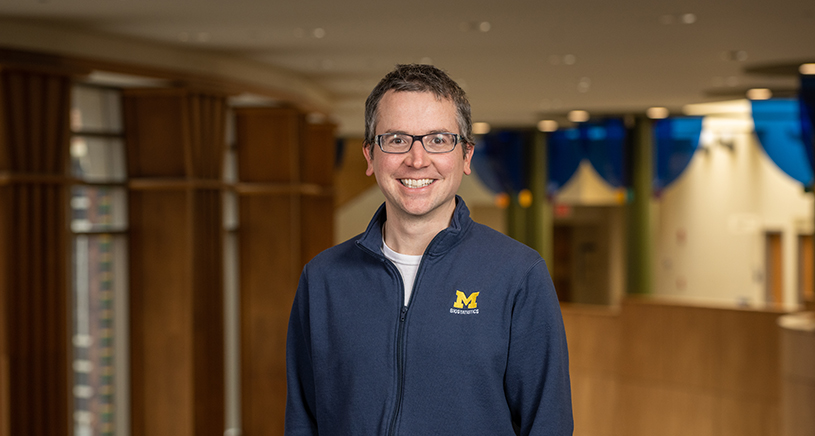 Philip S. Boonstra, PhD
Philip S. Boonstra, PhD
Research Assistant Professor, Biostatistics
Phil earned a master's degree and a doctorate in Biostatistics, both from the University of Michigan.
His current research interests include shrinkage estimators, hierarchical models, high-dimensional data analysis, and data integration techniques. His applied work focuses on cancer-related applications, including cancer epidemiology, cancer genetics/genomics, and early-phase oncology clinical trial design. More recently, Dr. Boonstra has been developing collaborations with critical care physicians conducting ECMO-related research.
Students who opt to pursue an elective series in the area of Biostatistics will have the opportunity to meet Dr. Boonstra. He is looking forward to teaching BIOSTAT 591 - Introduction to R. Dr. Boonstra is passionate about - and an advocate for - the statistical computing environment R and loves both learning and teaching R.
When not writing R code, Dr. Boonstra loves playing tabletop games with his family and friends, and his current favorites are Power Grid, Great Western Trail, and Agricola: All Creatures Big and Small. He also enjoys running, historical nonfiction, and numismatics!
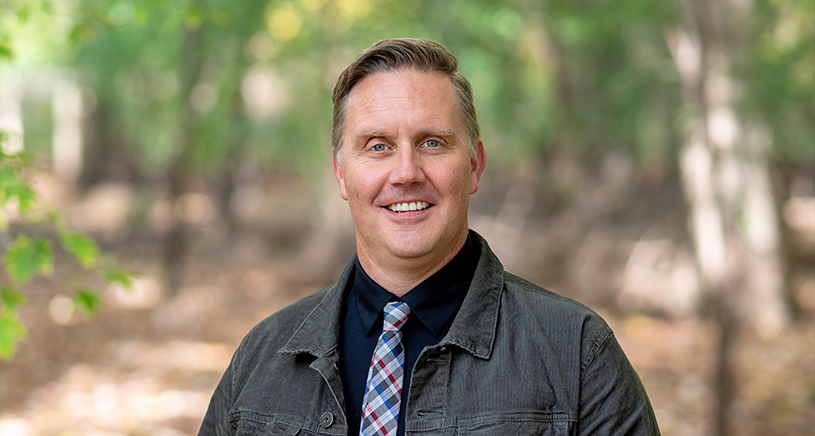 Thomas Braun, PhD
Thomas Braun, PhD
Professor, Biostatistics
Dr. Braun received his doctorate in Biostatistics from the University of Washington and joined the University of Michigan faculty that same year. Prior to his graduate studies in Seattle, Dr. Braun was an actuary with Metropolitan Life Insurance Company. Over the past 20 years, Dr. Braun has taught several biostatistics courses for the School of Public Health and has served as the primary statistician for clinical studies at the University of Michigan School of Dentistry and the Blood and Marrow Transplant Program at the University of Michigan Rogel Cancer Center. He is the author of nearly 150 collaborative and methodologic papers.
Dr. Braun's current research interests include: (1) adaptive phase I trial design methodology, including optimizing schedule of administration, accommodating patient heterogeneity, and incorporating multiple toxicity grades; (2) Bayesian methodology and designs for clinical trials in rare diseases; and (3) residual-based permutation tests for complex modeling settings.
Students enrolled in the online MPH will meet Dr. Braun during their first semester of the program. He is excited to teach one of the program's core courses - BIOSTAT 501 Introduction to Biostatistics.
In his spare time, Dr. Braun coaches and plays as much volleyball as possible, plays and composes music for the piano, and seeks to one day become fluent in Spanish.
 Cleopatra Caldwell, PhD
Cleopatra Caldwell, PhD
Professor Emeritus, Health Behavior & Health Equity
Director, Center for Research on Ethnicity, Culture and Health
Co-Associate Director, Program of Research on Black Americans
Dr. Caldwell earned a master's degree in Human Development from Wayne State University and a PhD and masters degree in Social Psychology from the University of Michigan. Her research interests include improving adolescent health through strengthening family relationships, research methods in African-American communities and family relationships, and discrimination and the mental health of African-American and Caribbean-American adolescents.
As a social psychologist, Dr. Caldwell's expertise is in psychosocial and environmental factors influencing the health and well-being of Black populations. She has experience developing academic-community partnerships to design and evaluate health interventions for African-American youth and their families. Dr. Caldwell has published in a number of areas including the influence of social relationships and social identities on the health and well-being of Black adolescents, the role of paternal support, racial discrimination, and racial identity attitudes as risks or protective factors for adolescent risky behaviors, and fatherhood as a context for understanding men's health.
Students enrolled in the online MPH program will meet Dr. Caldwell during their first semester of coursework. She is excited to teach PUBHLTH 508 Social Determinants of Health - one of the program's core courses.
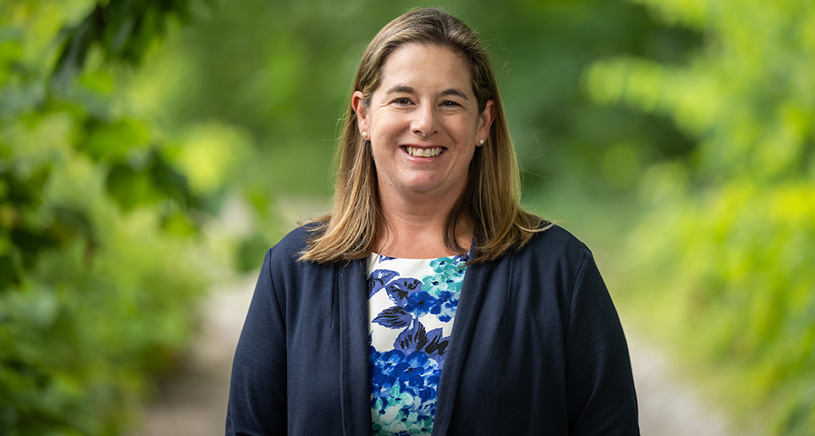 Dana Dolinoy, PhD
Dana Dolinoy, PhD
Professor, Environmental Health Sciences
Professor, Nutritional Sciences
NSF International Chair, Environmental Health Sciences
Faculty Director, Epigenomics Core at Michigan Medicine
Dr. Dolinoy earned a master's degree in Environmental Health and Risk Management from Harvard University and a doctorate in Genetics and Genomics and Integrated Toxicology from Duke University. She leads the Environmental Epigenetics and Nutrition Laboratory, which investigates how nutritional and environmental factors interact with epigenetic gene regulation to shape health and disease. She serves as an associate editor for a number of journals including Environmental Epigenetics, Environmental Health Perspectives, and Toxicological Sciences. Dr. Dolinoy received the 2015 NIH Director's Transformative Research Award to develop novel epigenetic editing tools to reduce disease risk and and the 2018 Society of Toxicology Achievement Award. She recently edited the book ToxicoEpigenetics: Core Principles and Applications.
Dr. Dolinoy co-teaches NUTR 590 - Developmental Origins of Health and Disease, a course offered in the Maternal and Child Nutrition elective series. Dr. Dolinoy also teaches doctoral students strategies for effective research and communication in the environmental health and nutritional sciences.
In the summer Dr. Dolinoy takes advantage of the Michigan long days by paddle boarding and kayaking the chains of lakes near Ann Arbor. She enjoys camping with her family and never misses a chance to find a geocache.
 Jennifer Erb-Downward, MPH
Jennifer Erb-Downward, MPH
Senior Research Associate, Poverty Solutions at the University of Michigan
LEO Instructor, Epidemiology
Jennifer holds a master's degree in public health from New York University. As a senior research associate with Poverty Solutions, Jennifer develops new projects and proposals related to family homelessness. She oversees research projects and assists with the analysis and translation of research findings to inform local, state and federal policy recommendations. Jennifer previously worked for the Institute for Children, Poverty and Homelessness in New York, NY. There she was the principal policy analyst for initiatives aimed at bringing awareness to family homelessness and for framing the city's policy agenda on this issue. Jennifer has extensive experience in policy analysis, program implementation and best practice research around family homelessness, behavioral health, chronic illness and the reduction of health disparities. She has been involved in the development of novel research programs in mental health and cancer prevention, and is passionate about addressing child homelessness in Michigan where she grew up.
Jennifer co-teaches Introduction to Spatial Epidemiology and GIS for Public Health, a course in the Spatial Epidemiology and Modeling series of electives. In her spare time, she likes to play music and garden.
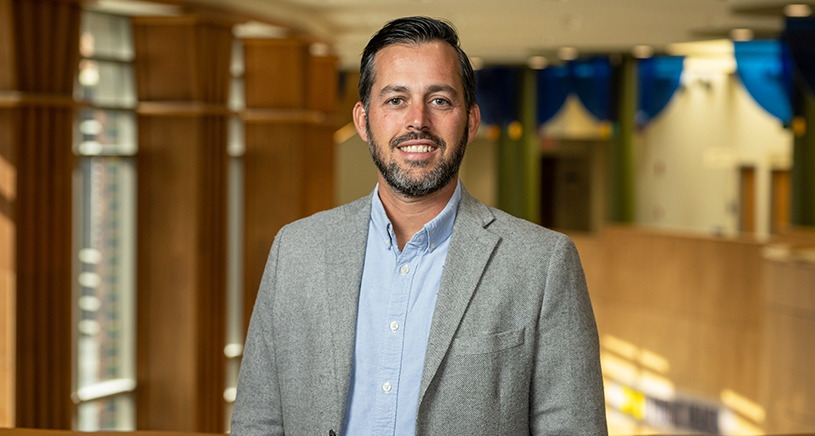 Paul J. Fleming, PhD
Paul J. Fleming, PhD
Assistant Professor, Health Behavior & Health Equity
Dr. Fleming received his MPH in Behavioral Sciences and Health Education from Emory University and his PhD in Health Behavior with a graduate minor in Sociology from the University of North Carolina. Prior to joining the University of Michigan, he worked as a Community Health Peace Corps Volunteer in Nicaragua developing and implementing sexual and reproductive health programs for men and also as a consultant on issues related to the social determinants of health for the World Bank and U.S. Agency for International Development.
His research focuses on the root causes of health and health behaviors, with a particular focus on developing and evaluating interventions in poor and marginalized communities in Michigan and abroad. In the work he does in Michigan, he uses a community-based participatory approach with Latino immigrants to examine how policies and discrimination contribute to poor physical and mental health outcomes. In his international work, he focuses on how gender norms - and their intersection with class and race/ethnicity - can result in men's harmful behaviors, including partner violence, sexual risk behaviors, and lack of support for family planning.
Dr. Fleming teaches HBHEQ 590 - Principles of Community Engagement for Health Promotion, a course in the Health Behavior & Health Equity elective series for the online MPH program.
In addition to his work, he enjoys eating donuts, chasing after his toddlers, and training for marathons.
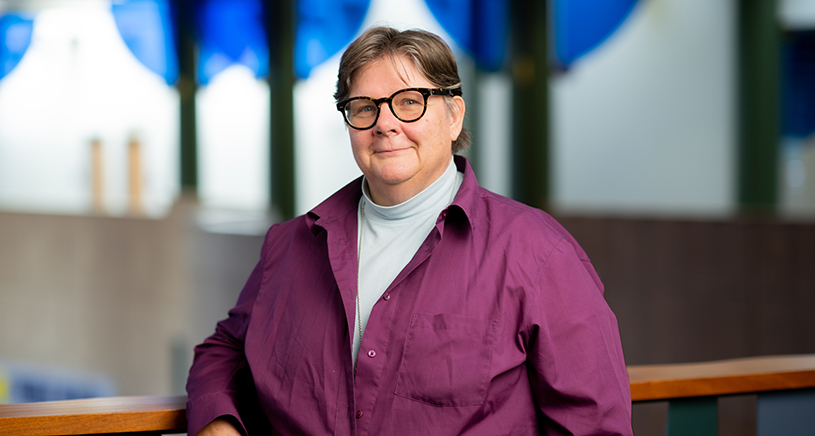 Sharon L.R. Kardia, PhD
Sharon L.R. Kardia, PhD
Associate Dean for Education
Millicent W. Higgins Collegiate Professor, Epidemiology
Director, Online MPH
Director, Public Health Genetics Program
Director, Life Sciences and Society Program
Dr. Kardia earned a master's degree in Statistics and a doctorate in Human Genetics, both from the University of Michigan. She has 30+ years of experience in the epidemiology of common chronic diseases and has authored over 300 publications. A major emphasis of her work has been on the target organ damage associated with untreated and uncontrolled hypertension. Other areas of interest include the genetic epidemiology of common chronic diseases and their risk factors, gene-environment and gene-gene interactions, and the development of novel analytical strategies to understand the complex relationship between genetic variation, environmental variation, and risk of common chronic diseases. Her research utilizes genomic, epigenomic, transcriptomic, and proteomic measures on large epidemiological cohorts.
Dr. Kardia serves as director for the online MPH. She is excited to teach PUBHLTH 515 Population Health - one of the program's core courses that online students enroll in during their second semester of the program. Dr. Kardia also teaches the applied practice and integrative experience course which students complete during the final two semesters of the program.
In her spare time Dr. Kardia enjoys gardening, watching YouTube videos on quantum mechanics, bird watching, and napping on rainy days.
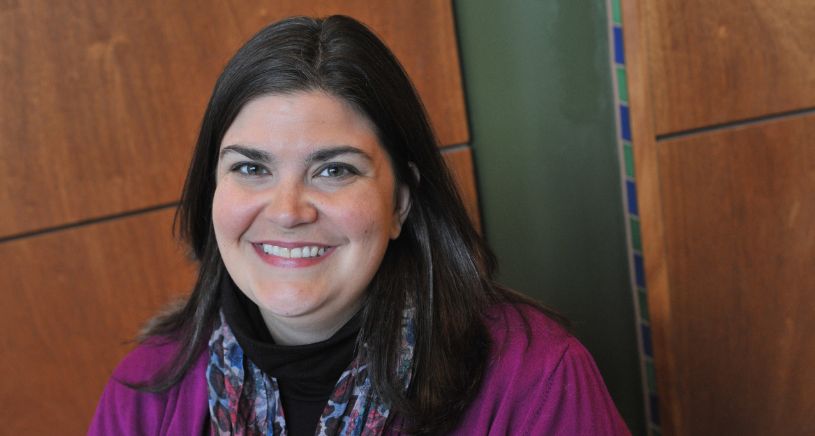 Carrie Karvonen-Gutierrez, PhD
Carrie Karvonen-Gutierrez, PhD
Assistant Professor, Epidemiology
Dr. Karvonen-Gutierrez received her PhD in Epidemiologic Science and her MPH in Epidemiology, both from the University of Michigan. She is a National Institute of Aging Butler Williams Scholar and is on the editorial board for the Midlife Women's Health Journal. She received a Mentored Research Scientist Development Award from the National Institute of Aging to examine metabolomics and osteoarthritis. She is the Principal Investigator on the Michigan Bone Health and Metabolism Study and a co-investigator on the Study of Women's Health Across the Nation.
Dr. Karvonen-Gutierrez's research focuses on the impact of chronological aging, reproductive aging and obesity and their intersections on the development and progression of chronic disease and musculoskeletal outcomes through the creation of a metabolically-dysfunctional and pro-inflammatory environment. To address her research agenda, Dr. Karvonen-Gutierrez pursues mechanistic and biologic hypotheses using both epidemiologic and clinical research designs leveraging her leadership in ongoing cohort studies as well as new data collection efforts.
Students enrolling in the online MPH program will meet Dr. Karvonen-Gutierrez during the first semester of the program. She is looking forward to teaching PUBHLTH 512 Principles of Epidemiology for Public Health - one of the program's core courses.
In her spare time, Dr. Karvonen-Gutierrez enjoys attending her children's games, recitals and other activities, and traveling with her family. She enjoys hobbies such as needlepoint and scrapbooking and is happiest on a sunny day at the beach with a good book.
 Kelley M. Kidwell, PhD
Kelley M. Kidwell, PhD
Associate Professor, Biostatistics
Dr. Kidwell joined the University of Michigan after she earned her doctoral degree in Biostatistics from the University of Pittsburgh. Her research centers on the design and analysis of clinical trials, especially sequential multiple assignment randomized trials. She is interested in many collaborative areas including cancer, mental health, and rare diseases.
Dr. Kidwell is excited to teach BIOSTAT 592 - Applied Regression, one of the courses in the Analyzing Health Data series of electives.
In her spare time, Dr. Kidwell enjoys spending time with her family (Gracie, 3 years, Caleb, 1 year, big lab mix, Ellie, 5 years, and her husband, Luke), being active, baking anything and everything with dark chocolate, and traveling.
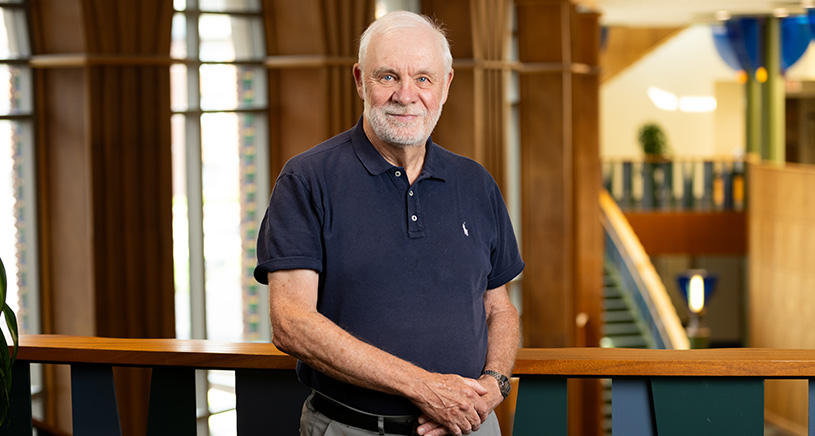 Roderick J.A. Little, PhD
Roderick J.A. Little, PhD
Professor, Biostatistics
Professor, Statistics
Research Professor, Institute for Social Research
Dr. Little earned his doctorate in Statistics from the University of London. Throughout his career he has served in a number key positions including research fellow at the U.S. Census Bureau, expert consultant for the United States Environmental Protection Agency, and scientific associate for the World Fertility Survey program. Dr. Little's experience at the U.S Census Bureau piqued his interest in federal statistical issues. Dr. Little has published over 250 articles in peer reviewed journals, notably on methods for the analysis of data with missing values and model-based survey inference, and the application of statistics to diverse scientific areas such as medicine, demography, economics, psychiatry, aging and the environment. Dr. Little is a recipient of the Samuel S. Wilks Memorial Award from the American Statistical Association for his outstanding research contributions. He gave the President's Invited Address at the 2005 Joint Statistical Meetings and the Committee of Presidents of Statistical Societies Fisher lecture in 2012. Dr. Little is a Fellow of the American Statistical Association and the American Academy of Arts and Sciences, and a member of the National Academy of Medicine.
Dr. Little is excited to teach BIOSTATS 593 - Design for Health Studies, one of the courses in the Biostatistics elective series.
Aside from loving statistics, Dr. Little is a classical music devotee who sings in a number of choirs in Ann Arbor. He also enjoys playing mediocre golf in the summer and cross-country skiing in the winter.
 William D. Lopez, PhD
William D. Lopez, PhD
Clinical Assistant Professor, Health Behavior & Health Equity
Faculty Director of Public Scholarship, National Center for Institutional Diversity
Dr. Lopez received his MPH in Management, Policy and Community Health from the University of Texas Health Science Center in Houston and his PhD in Health Behavior & Health Equity from the University of Michigan. His current research considers the ways in which immigration law enforcement impacts health mixed-status communities as well as how communities respond to large scale immigration work raids. He authored the book Separated: Family and Community in the Aftermath of an Immigration Raid, published by Johns Hopkins University Press.
Dr. Lopez teaches HBHEQ 591 - Planning and Implementing Health Promotion Programs, a course in the Health Behavior & Health Equity series of electives for the online MPH program.
In his spare time, Dr. Lopez enjoys spending time with his family, writing, and writing about writing.
 Alison M. Mondul, PhD
Alison M. Mondul, PhD
Assistant Professor, Epidemiology
Dr. Mondul received her MSPH in Epidemiology from Emory University and her PhD in Cancer Epidemiology from Johns Hopkins University. She spent five years as a postdoctoral fellow in the Division of Cancer Epidemiology and Genetics at the National Cancer Institute before joining the University of Michigan Department of Epidemiology.
Dr. Mondul has devoted her scientific career to studying the role of modifiable risk factors in the etiology of cancer. In particular, she has studied how lifestyle factors (such as use of common medications) and factors related to diet and nutrition (such as micronutrients and lipids) may influence prostate, bladder, and kidney cancers, as well as other genitourinary conditions such as benign prostatic hyperplasia. She has further studied how genetic factors may contribute to or modify these associations. More recently, Dr. Mondul has become involved in studying head and neck cancer, which is an exciting area of inquiry as it remains an understudied cancer. In order to study these associations she has used molecular epidemiologic techniques including hypothesis-driven studies of serum biomarkers, genome-wide association studies, and metabolomic profiling.
Dr. Mondul teaches Surveillance and Publicly Available Datasets, a course in the Epidemiologic Methods series of electives.
In her spare time Dr. Mondul enjoys knitting, tennis, and playing video games with her son. She is also an avid martial artist, having earned her black belt in Taekwondo.
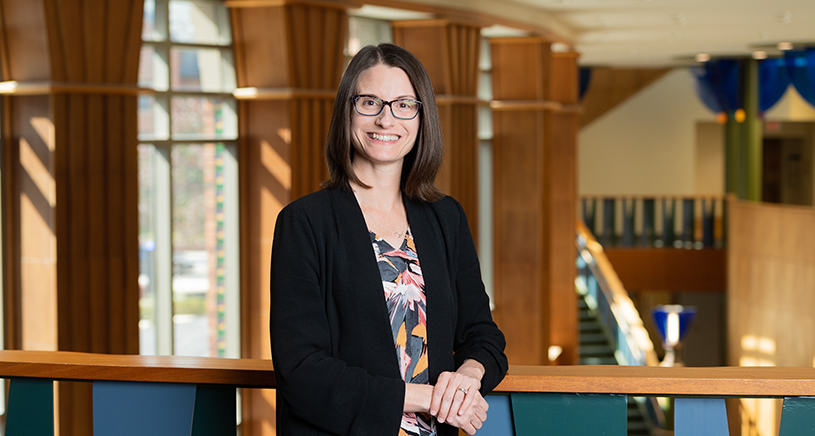 Belinda L. Needham, PhD
Belinda L. Needham, PhD
Assistant Professor, Epidemiology
Co-Director, Center for Social Epidemiology and Population Health
Dr. Needham holds a master's degree and a doctorate in sociology, both from the University of Texas. Dr. Needham's research focuses on health disparities. Her work seeks to identify, explain, and reduce racial/ethnic, socioeconomic, gender, and sexual orientation health disparities. Dr. Needham's primary research goals are to use novel approaches to assess health disparities across the life course and to identify the social structural, psychological, behavioral, and physiological mechanisms by which social disadvantage leads to health disparities. She is currently working on a research grant from the National Institute on Minority Health and Health Disparities to examine race/ethnic differences in DNA methylation as a mechanism underlying racial/ethnic disparities in cardiovascular morbidity and mortality.
Dr. Needham co-teaches EPID 591 - Social Epidemiology: From Frameworks to Policy, a course in the Epidemiologic Methods elective series. She has taught an introductory social epidemiology course in the residential MPH program since 2014 and is excited about the opportunity to teach in the online degree program.
In her spare time, Dr. Needham enjoys reading novels, watching her son play soccer, eating chocolate, and practicing Pilates.
 Richard (Rick) Neitzel, PhD, CIH
Richard (Rick) Neitzel, PhD, CIH
Associate Chair, Environmental Health Sciences
Associate Professor, Environmental Health Sciences
Associate Professor, Global Public Health
Dr. Neitzel has a master's of science degree in Environmental Health and a doctorate in Environmental and Occupational Hygiene, both from the University of Washington. He is an exposure scientist whose research focuses on enhancing our understanding of exposures to physical hazards such as noise and injury risks, along with a range of adverse health effects associated with these exposures. For example, did you know that noise exposure has been linked to heart attacks, high blood pressure, injuries, and accidents? Dr. Neitzel is particularly interested in incorporating new methodologies and technologies for measuring exposures into his research, and also has a strong interest in translating his research findings into occupational and public health practice. He has conducted research in locations throughout the U.S., as well as in Sweden, Thailand, Chile, Ghana, and Kuwait. He is a Certified Industrial Hygienist and a Fellow of the American Industrial Hygiene Association.
Dr. Neitzel is excited to teach PUBHLTH 514 - Public Health Sciences and the Environment. Online MPH students enroll in this course during their second semester in the program.
On a personal note, Dr. Neitzel is an avid bicyclist (even in the depths of Michigan winters!), and enjoys exploring the world with his family.
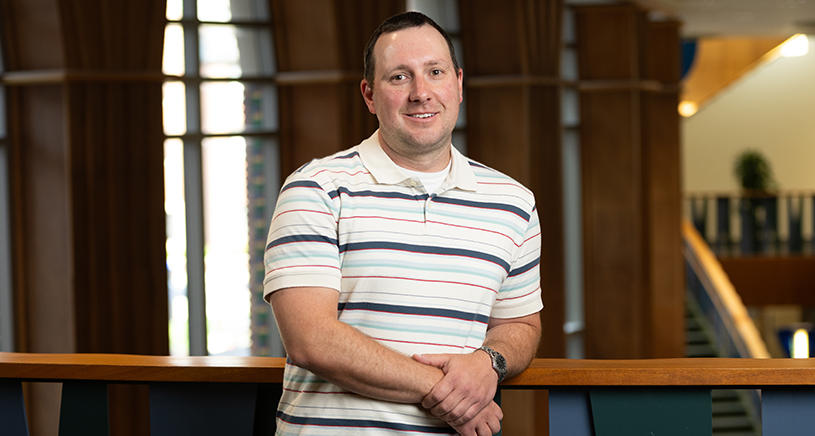 Matthew Zawistowski, PhD
Matthew Zawistowski, PhD
Clinical Assistant Professor, Biostatistics
Dr. Zawistowski earned a doctoral degree in Biostatistics from the University of Michigan, focusing on problems in statistical and population genetics. He develops statistical methods for analyzing genetic variants identified in large-scale genome sequencing studies to better understand human populations and disease. Dr. Zawistowski gained valuable experience working with electronic health records at the Veterans Affairs Ann Arbor Healthcare System. He is currently involved in the Michigan Genomics Initiative, which combines his interests in genomics and phenotyping through electronic health records.
Dr. Zawistowski is passionate about teaching math and statistics. He teaches Applied Longitudinal Analysis, a course in the Analyzing Health Data series of electives for the online MPH program.
When not teaching statistics, Dr. Zawistowski enjoys coaching youth soccer and going fishing.
 Brian J. Zikmund-Fisher, PhD
Brian J. Zikmund-Fisher, PhD
Associate Professor, Health Behavior & Health Equity
Research Associate Professor, Internal Medicine
Associate Director, U-M Center for Bioethics and Social Services in Medicine
Dr. Zikmund-Fisher received his master's degree in Behavioral Decision Making and Economics and his doctorate in Behavioral Decision Theory from Carnegie Mellon University. He is an Associate Director of the U-M Center for Bioethics and Social Sciences in Medicine and a core faculty member of the U-M Health Informatics program. He serves as an associate editor for the journals Medical Decision Making and Medical Decision Making: Policy & Practice.
Dr. Zikmund-Fisher uses his interdisciplinary background in decision psychology and behavioral economics to study factors that affect individual decision making about a variety of health and medical issues, with a particular emphasis on health risk perceptions. His research in health communications focuses on making risk statistics, test results, and other types of quantitative health information meaningful and useful for decision making by patients and the public. He also studies the use of narratives (stories) in health communications, patient preferences for more versus less health care, and how to train people to communicate effectively with non-scientist audiences.
Dr. Zikmund-Fisher teaches graduate courses that focus on enabling students to communicate health and science information clearly and memorably. He is exploring the use of improvisational theater games as tools for building health and science communication skills.
Dr. Zikmund-Fisher enjoys good chocolate, most East Asian foods, and juggles for stress relief.
Students enrolled in the online MPH will meet Dr. Zikmund-Fisher during their second semester in the program. He is excited to teach one of the required core courses - PUBHLTH 510 Communication Fundamentals. Dr. Zikmund-Fisher also teaches Clear Health Communication, a course offered to students who plan to complete the Health Behavior & Health Equity series of electives.
